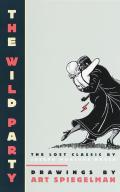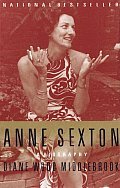"I'll celebrate all wayward things
From man's mind born:
The private elves of disprespect
No less than unicorn."
--Eugene Walker, "The Fireworks at Versailles"
Eugene Walter was a man of many talents: prose, poetry, essays, cookbooks, marionette shows, socializing. Upon his return to Mobile after years spent in New York, Paris, Italy, and the Arctic Circle, Eugene moved back to Mobile and took up residence in a house lent to him by the city.
It was promptly trashed by Hurricane Frederick. Eugene threw a dinner party the next evening. As he put it in Katherine Clark's excellent life history/oral autobiography
Milking the Moon, "Today may bring money in the mail. Today may bring a hurricane. You have to be ready for either one. In either case, give a party."
I'll be posting a review of his prize-winning novel,
The Untidy Pilgrim, later tonight. But now I'd like to open up the Eugene Walter Memorial Doggerel Contest.
Your job? Compose a couple or a few lines of nonsense/less-than-serious verse. Verse, as the back jacket of one of Eugene's poetry collections puts it, that is "satirical, lyrical, comical, paradoxical, dipsical, doksical, hortatory, plumatory, amatory, bibliophilic, astrophilic, botanophilic, ailerophilic, gustatory, fun-cranky, and whoopsical". Post 'em in the comments.
Difficulty: No limericks.
To get you started, here's a link to an mp3 (scroll down and click) of Eugene
reading the "The Fireworks of Versailles", brought to you by the good people at Nomad Music Studio, where you can purchase a cd of Eugene reading his poems and stories, and singing his songs.
And here's one of my favorites of his:
"Young Poet to Old Anthologist"
by Eugene Walker
(From
The Pack Rat & Other Antics, 1937-1987)
When I tear the sun from his socket
And rearrange the stars in rows,
Cause the sea to blacken and churn,
Casting up green goblins on prosaic shores-
When you behold me, on a moonless night,
Clad in ire and white fire,
Then O then indeed
You shall be very sorry
You were not listening when I spoke.














